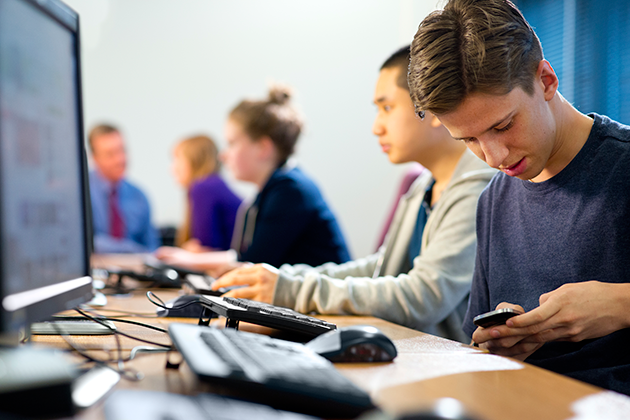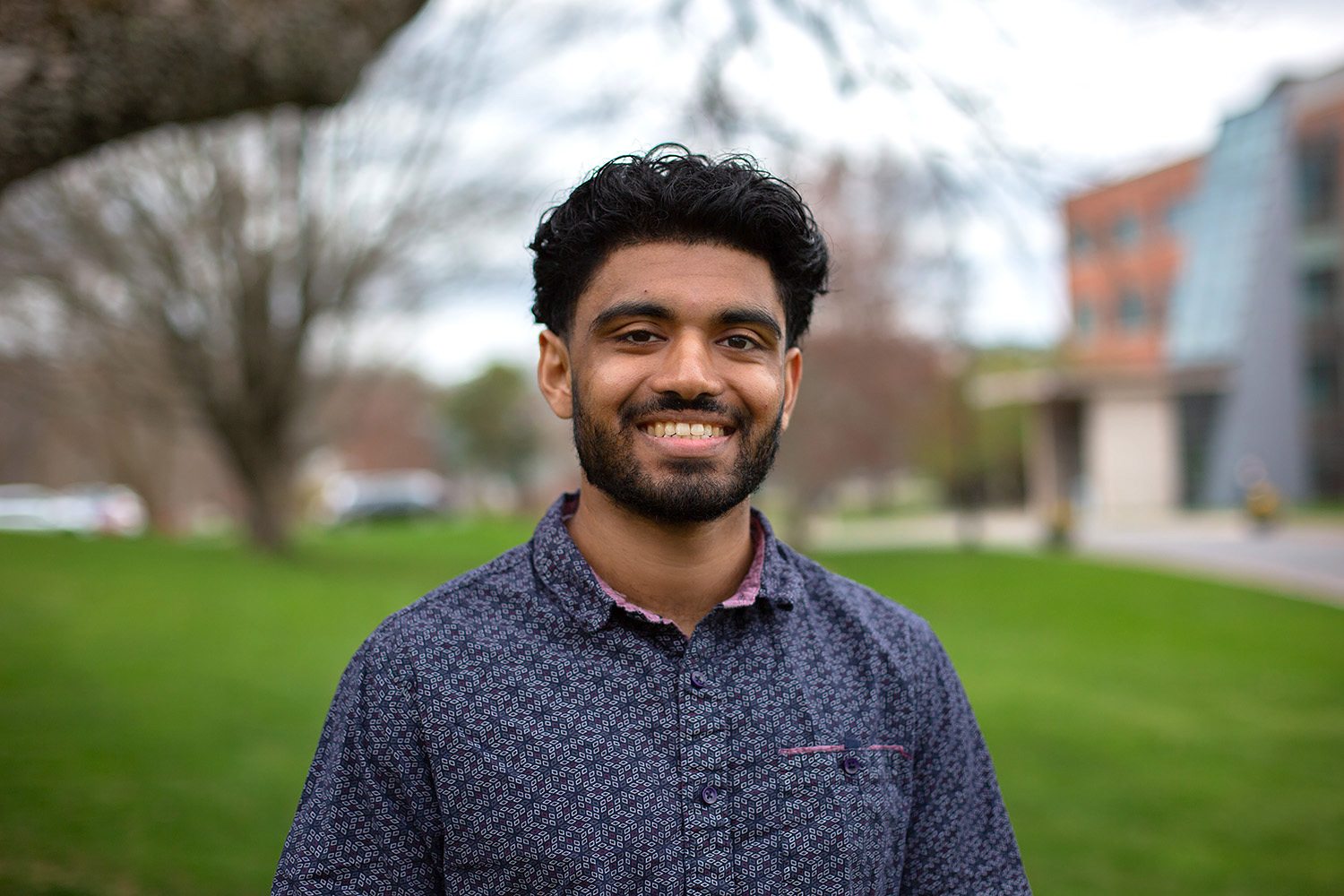
Scan a college classroom these days and you are just as likely to see students texting and surfing the Web as taking notes.
Many students feel there is nothing wrong with sending out a few quick texts or jumping on Facebook during class, and many are proud of their self-perceived ability to keep abreast of classroom discussion while their attention is divided.
But a new study by researchers at the University of Connecticut shows multitasking is hurting college students more than they think.
In a survey that probed the multitasking habits of more than 350 college students, UConn researchers found that students who multitasked while doing homework had to study longer, and those who frequently multitasked in class had lower grades on average than their peers who multitasked less often.
While prior studies have reported that classroom multitasking can hurt students’ grades, the UConn study is believed to be the first to take into account whether students’ prowess at multitasking and additional time spent studying offset the tendency for poorer academic performance. It did not.
“While texting and learning to use media are important for socialization and the use of technology is an important skill, our data shows that students are paying a price for this behavior,” says Saraswathi Bellur, an assistant professor in UConn’s Department of Communication and one of the study’s principal investigators.
Texting was far and away the most frequent multitasking distraction, followed by logging on to Facebook, checking email, and surfing the Web.
While taking longer to complete homework due to a lack of focus may be an inconvenience and a sign of bad study habits, missing classroom discussion due to multitasking is particularly troublesome.
Students are paying a price for this behavior. — Saraswathi Bellur
Studies have shown that people are most successful at processing information from short-term memory to long-term memory when they are paying strict attention to the task at hand.
Students checking out of a lecture briefly to read or send texts must divert their attention and may not be aware that they are missing critical information from their instructor. By the time they refocus on what’s happening in class, the opportunity to capture important details may have passed.
“Humans have limitations on their cognitive capacity,” Bellur says. “Our resources are limited. So the moment we pay attention to one thing, it makes it that much harder for us to process something else.”
Bellur cautions that the study is based on students self-reporting their multitasking habits, and further research is needed. The conclusions only identify a significant correlation between multitasking and academic performance, even after controlling for multitasking efficacy and time spent studying outside of class. The cause for such a correlation still isn’t clear.
“This is very much a first step,” says Bellur. “We really don’t know in what direction this is heading. Is it that students who multitask in class have lower grade point averages, or is it that students with lower grade point averages are more prone to multitask in class?”
The survey asked students to describe how often they multitasked in class and while doing homework, offering a range of options from “Never” to “Very frequently.” Students were also asked to self-report their grade point average, how much time they spent preparing for class, and how good they thought they were at multitasking. Their answers were then scaled and analyzed.
An abundance of technology in the classroom, including smartphones that keep students constantly connected to the Internet, has been a growing concern for parents and educators who worry about its impact on learning.
According to one recent study, nearly 40 percent of students surveyed reported they were unable to go more than 10 minutes without checking their phones or some other device. In 2010, a Pew study found that nearly 64 percent of students admitted to regularly texting during class. Close to three-fourths of college students acknowledged they engage with some form of technology while studying.
Those kinds of numbers worry professors like Bellur.
“This technology is integrated into college life,” Bellur says. “The question now becomes how can we encourage students to use technology in such a way that it assists with their learning but doesn’t become a constant distraction?”
Some teachers set classroom rules about the use of laptops and smartphones in class. Instructing college students about the pitfalls of multitasking as part of their freshmen orientation has also been considered. Helping students become more mindful of their classroom behavior is another option.
“A lot of this just comes down to mindfulness,” Bellur says. “People often put their phones away when they are meeting with friends or having dinner. Those are mindful, conscious decisions. It would be nice if students brought that same kind of mindfulness to class.”
Joining Bellur on the study were associate professor of communication Kristine Nowak, and Kyle Hull, a Ph.D. graduate in communication now serving as an instructor at Aquinas College.
The study, which was recognized as one of the top papers at the National Communication Association Conference in Chicago last year, is reported this month online in the journal Computers in Human Behavior.



